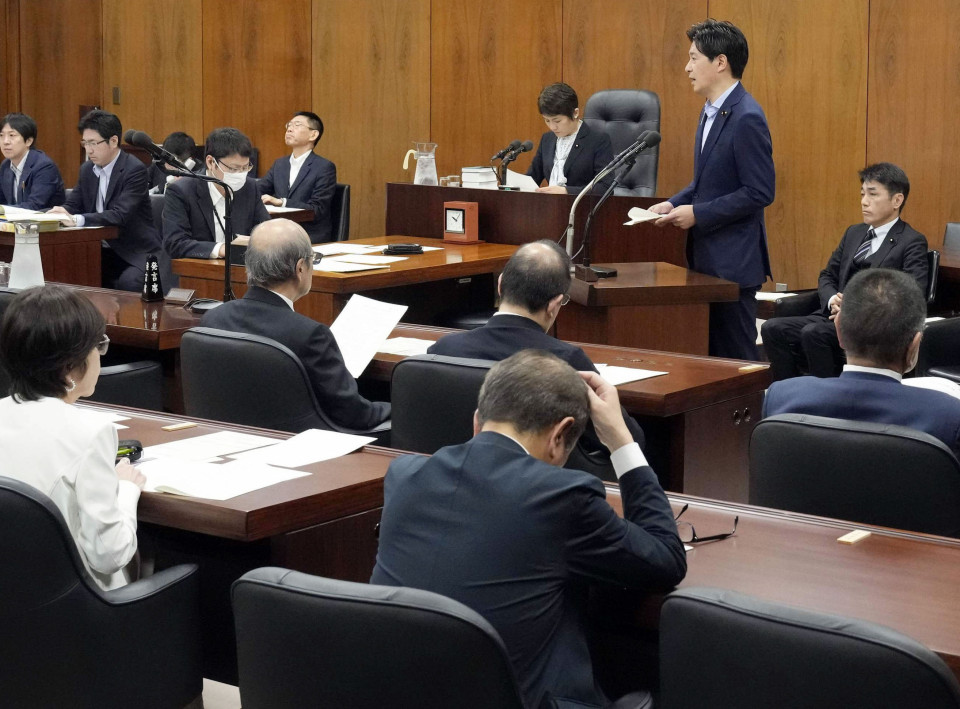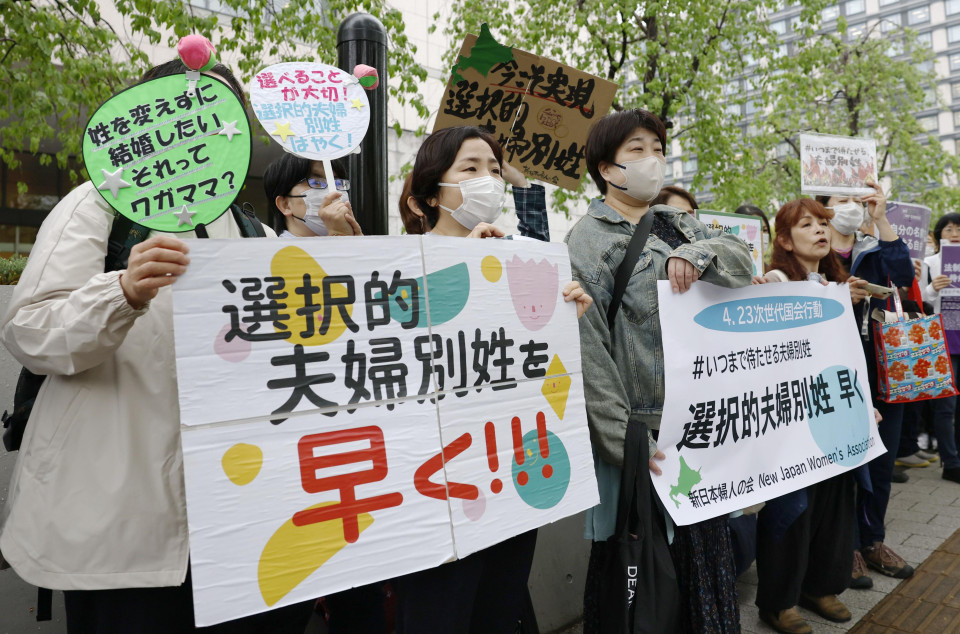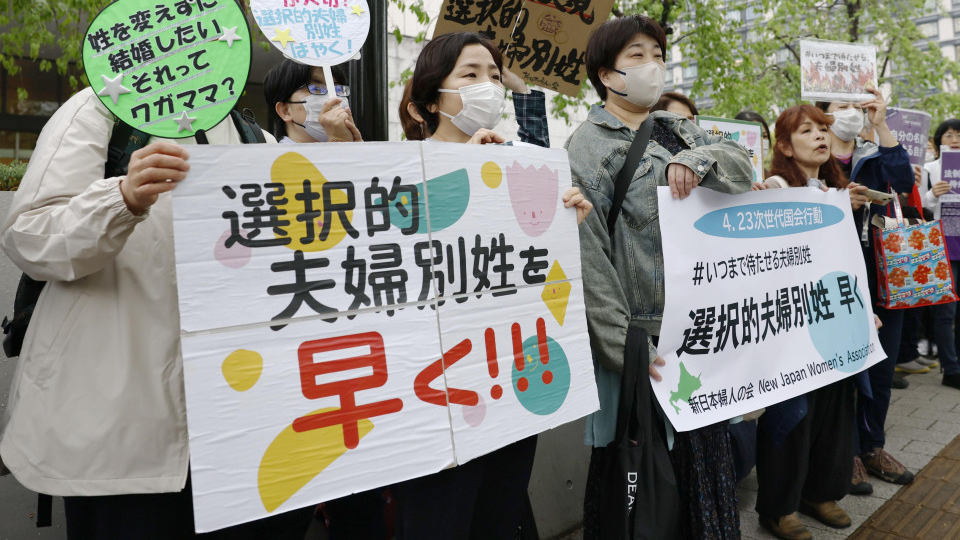Japan’s parliament on Friday began its first deliberations in 28 years on legislation that would give married couples the option of keeping different surnames.
The passage of any of the three bills submitted separately by three opposition parties, however, looks unlikely during the current Diet session through late June, despite growing public acceptance of their push to change the longstanding rule requiring married couples to share a single family name.
The ruling Liberal Democratic Party led by Prime Minister Shigeru Ishiba, who heads a minority government, remains reluctant to allow the change, with some within the party concerned that it would hurt family cohesion and traditional values.

The House of Representatives’ judicial affairs committee begins deliberations on bills that would give married couples the option of using separate surnames in Tokyo on May 30, 2025. (Kyodo)
A revision to the Civil Code is required to enable couples to keep different family names after marriage. Up to now, it is mostly women who abandon their maiden names.
Among the vocal supporters of introducing a dual family-name system, the Constitutional Democratic Party of Japan seeks to allow people to choose whether to retain their family name or change it to their partner’s. The couples would be required to decide, upon marriage, which of their family names their children will use.
The Democratic Party for the People also wants to allow separate family names, but, according to its bill, children should automatically use the family name of the head of the household couples designated in their family register.
The Japan Innovation Party, meanwhile, is sticking to the principle of one family name for each household. But it aims to give legal status when a person uses their premarriage name even after wedlock by allowing it to be specified in the family register.

Demonstrators call for a law change in Japan to allow married couples to have separate surnames before the parliament in Tokyo on April 23, 2025. (Kyodo)
In 1996, the Justice Ministry’s legal counsel recommended that couples should be able to choose to keep different family names upon marriage and decide in advance which family name will identify their children, although the same name should be used by all offspring.
The following year, parliament deliberated on an opposition-submitted bill to revise the Civil Code that would have opened the way for the dual surname system.
Since then, Japan has made little headway in making the change.
In recent years, business leaders have been stepping up calls for introducing the system of different surnames, and the public has warmed to the idea.
In a Kyodo News poll, 71 percent of respondents supported the dual family-name system, while 27 percent were opposed.
Ishiba has stressed the need for the LDP to deepen internal debate on the issue, but the ruling party has yet to reach a consensus ahead of the House of Councillors election.
Related coverage:
Japan surname law cited in 30% of common-law unions: survey
Over 40% of Japanese want to use old surnames at work after marriage
